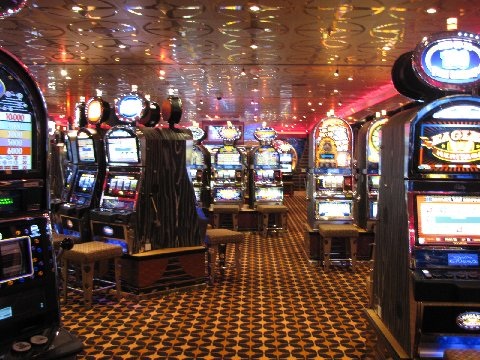| The gambling industry is touting a newly released report by Oxford Economics that purports to show the economic benefits of legalized games of chance. Titled “When gaming grows, America grows,” it is stuffed with figures that make it appear as if we’re all missing bet by not rallying behind gambling as the nation’s chief industry. Gambling is portrayed as an economic engine, “a unique segment of the U.S. entertainment industry that depends on a large workforce and the support of thousands of outside vendors and suppliers, |
| | which makes it dynamic in creating jobs and fueling economic growth.” That economic engine equals $240 billion, the report says. It provides $38 billion in local, state and federal taxes. Gambling advocates have been quick to jump on the report as proof that all the cranks and moralists out there are wrong about how the something-for-nothing illusion is bad for the nation’s health. It was almost enough to distract attention from news stories this week about how New Jersey’s casino revenue is in a free fall, with four major ones having closed their doors this year. Gov. Chris Christie has decided to confront this problem head-on by approving betting on sporting events, despite a federal ban. In an editorial published last week, USA Today called New Jersey “a prime example of how states are the worst offenders in the world of gambling. They are both addicts and pushers. They throw temper tantrums and upset settled policy when their fix of gambling revenue runs low. And rather than compensating for the effects, they encourage their own citizens to gamble more and in different ways.” Well said. The editorial might have added that they also rally behind the dubious figures in economic reports that tell only one side of the story. The problem with believing that gambling is a $240 billion economic engine is that the industry actually produces nothing. It takes the money people freely give, then redistributes a tiny portion of it based on the roll of a pair of dice or the randomness of formulas programmed into machines. The rest goes to pay for casino operations and provide jobs. Legitimate industries provide products that enhance lives. Over the last 35 years, Bill Gates and Steve Jobs alone created an entire new industry of products that revolutionized the way people interact and share information. Even legitimate recreational industries provide the mental or physical health people need to cope with everyday stress. But gambling, in a real sense, is equivalent to a voluntary tax, although there is evidence that the voluntary part is overstated. Slot machines, in particular, are engineered to keep people playing as long as possible, or until they run out of money, “a phenomenon that people in the industry call ‘playing to extinction,’” according to a report by the independent Council on Casinos. Most of this tax is paid by the poor, which makes state support for gambling ironic in the wake of a Great Recession. But there is evidence that much of it also is paid by people with gambling addictions. The same report estimates 1.1 percent of Americans have a gambling disorder, while another 2 percent are less severe problem gamblers. But their spending accounts for between 35 and 50 percent of casino revenues. According to the Pacific Standard website, problem gambling increases as people gain access. Dr. Rachel Volberg, a research associate professor of epidemiology at the University of Massachusetts-Amherst and a researcher for the Massachusetts Gaming Commission, found that the recent expansion of casinos in this country and Australia led to an increase in people with these disorders. The Oxford Economics report’s claims already were suspect on their face. For example, they include $14.4 billion that visitors to casinos spent at nearby businesses, as if those people wouldn’t have spent money at similar businesses or recreational pursuits elsewhere in the absence of gambling houses. But in light of the social costs the industry creates while producing nothing of value, the benefits vanish into thin air. Voters in a number of states face ballot measures related to gambling this fall. If they could cut through the hype and half-truths, their choices would be clear. |


 RSS Feed
RSS Feed

